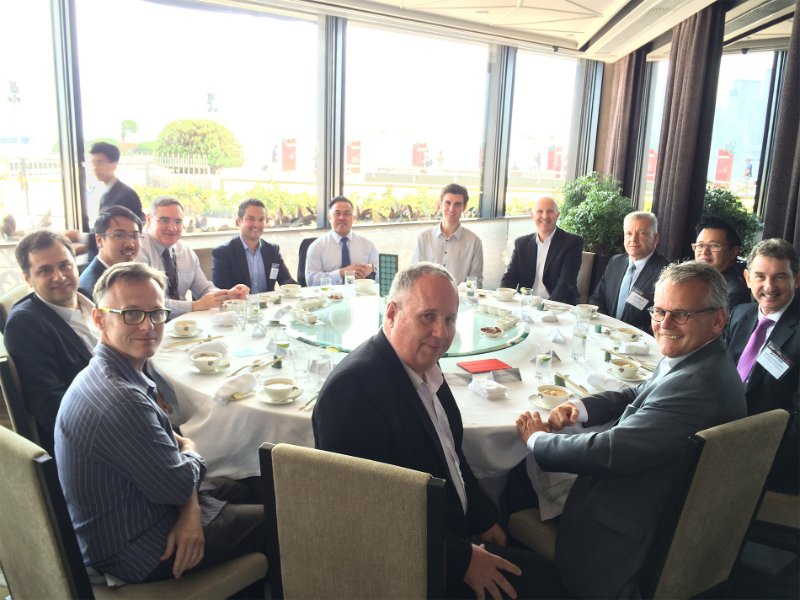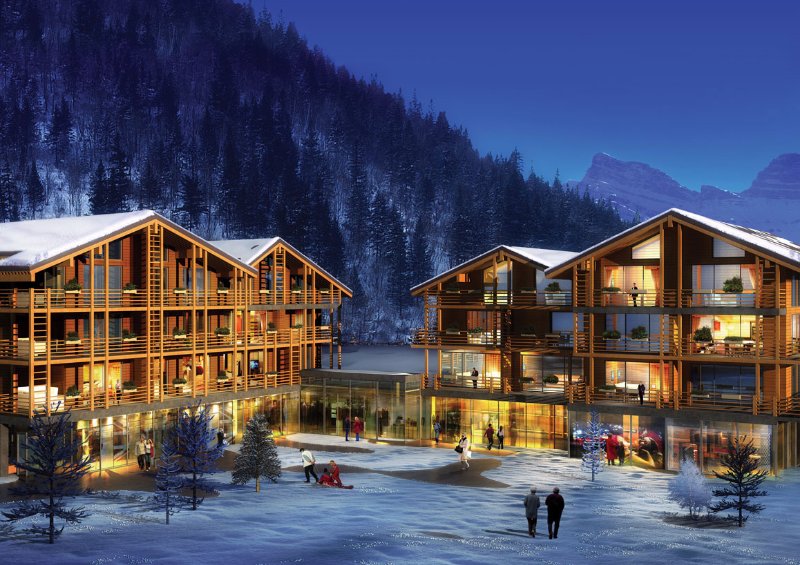25
Aug 2016
Luxury Hospitality: A New Definition & Outlook
SPOTLIGHT ON: Carina Svensen Global Brand Director, Quorvus Collection, by Sharon Hirschowitz/ Luxury Hoteliers magazine
The Omega Project is a premium digital marketing company in Thailand. We do promote and support business project within various business areas.
Carina explores how luxury hospitality has become more experiential and the modern customer more diverse as she looks at the new definition of luxury. She examines today’s consumer and their constantly evolving search for an experience that is authentic, meaningful and unique
How has luxury changed the last few years and how has this impacted luxury hospitality?
There are obviously a number of forces in motion and some fundamental shifts in consumer demographics. But, in my opinion, the single largest change of the last few years has been the movement away from Luxury products towards Luxury experiences.
In both value and demand, the market for experiences has overtaken Luxury’s traditional heartland – Personal Luxury Goods – as well as most big-ticket categories. What we’ve witnessed has been a natural evolution in the pursuit of greater exclusivity. Difficult to replicate and impossible to counterfeit – experiences guarantee a unique relationship with Luxury brands that product cannot.
For Luxury Hospitality, this means two things:
- Increasing Opportunity – Hotel brands that shape their offer around the guest experience are in a unique position to capture opportunity. Both Travel and Hospitality (in its broadest sense) are intimately connected with personal experiences – and the industry has been one of Luxury’s largest beneficiaries in terms of consumer spend and investment interest.
- Intensifying Competition – The other side of the coin is that Luxury brands are falling under increasing pressure to innovate and engage audiences on an experiential level. Once differentiating offers – like product personalisation, anticipatory service, a sense of theatre or even an immersive digital platform – are all becoming industry-wide standards. The average level of consumer expectation is being pushed ever higher and nowhere is the expectation for Luxury experiences greater than in Hospitality.
Who is the new Luxury Consumer? Do we understand them?
Trying to understand the new Luxury Consumer is an inherently complex matter. If we take those who buy into Luxury as a whole, our audience has never been broader or more diverse – in age, in culture or in affluence. So treating “The Luxury Consumer” as a type – or even as a set of discrete customer profiles – is something of a misnomer.
For brands today, it’s perhaps more useful to try and understand the common lifestyles, values and sensibilities which unite an increasingly diverse customer base – rather than thinking about traditional segmentation. In fact, there are a number of significant consumer traits that are shaping the way we do business today, and which would have been considered marginal 10 ILHA behaviours only a few years ago.
Just to give one of the most interesting examples, many of today’s emerging Luxury consumers are willing to ‘mix and match’ more than ever before. They are prepared to trade down on one purchase, in order to trade up on another they deem more aspirational. In fashion, it’s the kind of consumer who’s comfortable pairing Zara with Céline, and for us – it’s the kind of consumer who opts for an Airbnb in one city and a five-star stay in another.
We only have to look as far as the success of Select Service concepts for proof of its influence. But that’s just one example of the way in which our consumer is becoming far more discerning and sophisticated across the board. Luxury has become a high risk/reward environment – where opportunity abounds but brands need to work harder in order to capture it.
Can we expect the definition of luxury to continue to evolve? How can hotel brands keep in touch with changing expectations?
Luxury is amongst the world’s most dynamic industries and – where cachet is so closely associated with being ‘first-inline’ or ‘ahead-of-the-curve’ – change is integral to its DNA. So yes, I fully expect that the definition of Luxury will continue to evolve.
Having said that, I think we can also expect to see a lot of today’s emergent trends play out on an even larger scale in the future. It seems likely that a number of attitude shifts – an increasing sensitivity to intrinsic qualities and values (beyond ostentation and overt display), a growing preference for individual significance (over universal recognition), or a deepening interest in authenticity and local relevance – will all play a part in shaping new consumer expectations.
What’s interesting, of course, is that many of these trends are also cyclical in nature. Many traditional signifiers of quality and exclusivity – such as an emphasis on craftsmanship or the value of personal relationships – have experienced a recent renaissance, and are being made increasingly compatible with modern notions of brand and status.
It’s by looking at these shifts and renewals that hotel brands can best hope to pre-empt changing market dynamics and to steal a march on the competition. Yet ultimately, the consumer is the author of industry change and it’s always been my belief that – if you truly want to understand where expectations are moving – then that’s where you need to start.
You talked about offering experiences that go beyond the point of purchase. Can you elaborate on this?
Quite simply, Luxury is no longer perceived or consumed along purely transactional lines – and many of today’s Luxury consumers want more than a product delivered or a service rendered.
Confronted with more choice than ever before, Luxury is less about what you buy and more about why you buy it. It’s about demonstrating taste and status through your wider lifestyle.
So for Luxury brands, there is a need to emphasise the connection between what they offer and the aspirational ‘way of life’ it’s part of. It’s no longer enough to promote the superlative ‘product’ – consumers want a more active and participatory relationship with ILHA 11 the brands they buy into; to share in the same values, to feel part of a likeminded community and to play a role in their history.
We need to think about the Luxury experience as a journey we take our customers on. One that builds anticipation in advance of purchase and that sustains their engagement long afterwards.
To quote you from your session at the ILHA’s European Summit in Athens, the “Modern Luxury Customer is looking for meaningful and enriching experiences that go beyond product and service alone.” How can hotels create these experiences and also bring the world of luxury closer to their staff?
I believe that, for any Luxury hotel group serious about building their brand in today’s environment, it’s almost impossible to achieve the success they want off the back of product or service standards and SOPs alone. Although these are just as vital as ever, what so often differentiates the strongest brands are their distinctive and meaningful guest experiences – and the way they bring these to life.
Luxury Hospitality experiences can be thought about in a number of ways. For instance; as an individual experience, delivering a service that feels genuine and personally relevant; as a social experience, the result of bringing together a diverse community of guests and locals; as an intellectual experience, including the cultural and aesthetic stimulation your hotel provides; or as an emotional experience, the way in which you speak to the values of your guests.
Although all of these different luxury experiences respond to the rising expectations of modern Luxury consumers, the success of their delivery depends entirely upon the role of the hotel’s staff. For your people to truly deliver an experience that is sensitive to the individual characters of your guests – as well as to the values, attitudes and sensibilities which unite them – they must be able to empathize with your guests and the lifestyles they lead.
When we set about defining our own guest experience at Quorvus Collection – ‘to reflect the distinctive character of local culture’ – we thought about how our people could bring this aspirational experience to life from a variety of angles.
One of the ways in which we supported this was by designing a dedicated, digital engagement platform. Essentially, a proprietary microsite that connects all of our employees across the world and which keeps them abreast of recent developments from the world of Modern Luxury. With access to information on headline cultural events (both global and destination-specific), case studies on the most exciting luxury brands and opinion pieces on the latest trends in hospitality – it’s a resource both to inform their guest relations as well as to inspire and share new bestpractice ideas.
As more and more Luxury hotel brands now begin to focus on the unique lifestyle and experience they can offer their guests, the players which stand apart will be those that deliver theirs most credibly. Whether it’s through the content they share, the experiences they offer, or the Learning and Development opportunities they provide – brands which allow their employees to ‘live’ and engage with the Luxury lifestyle they help to create, will be those which understand their guests the best.
See another posts on https://theomega.asia/news


